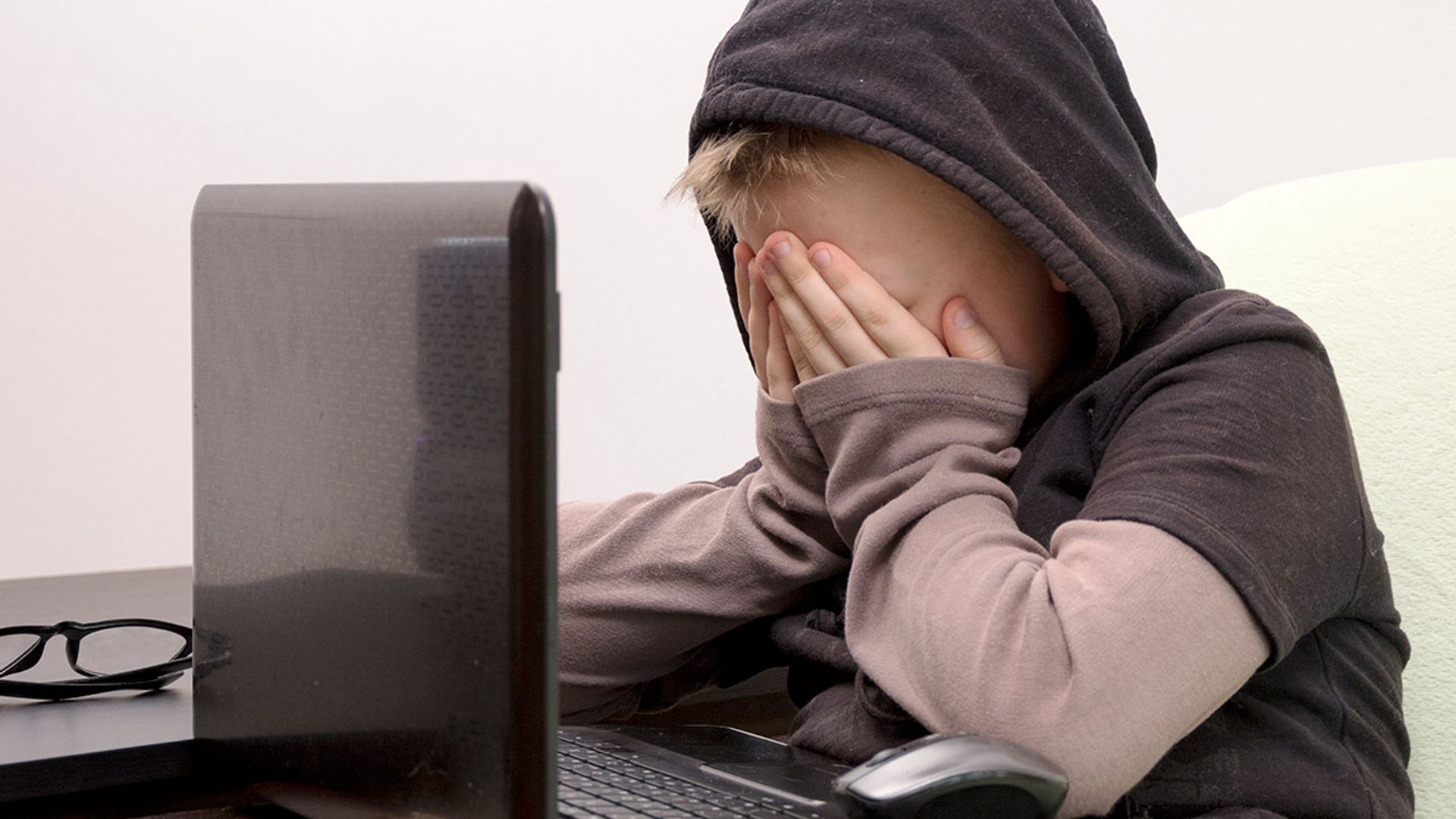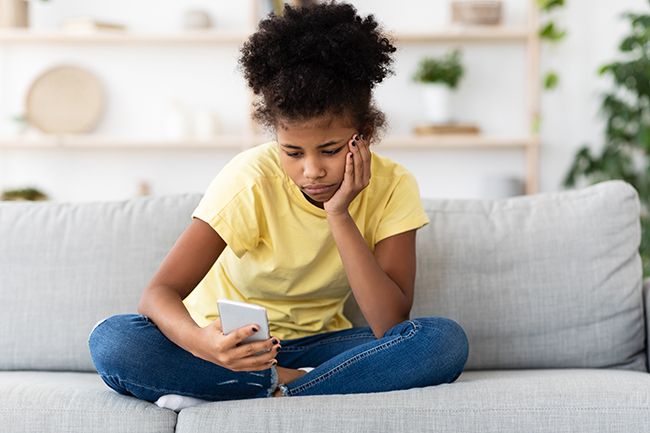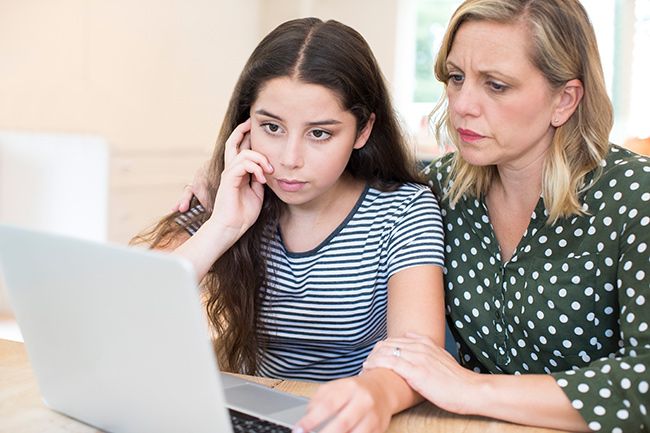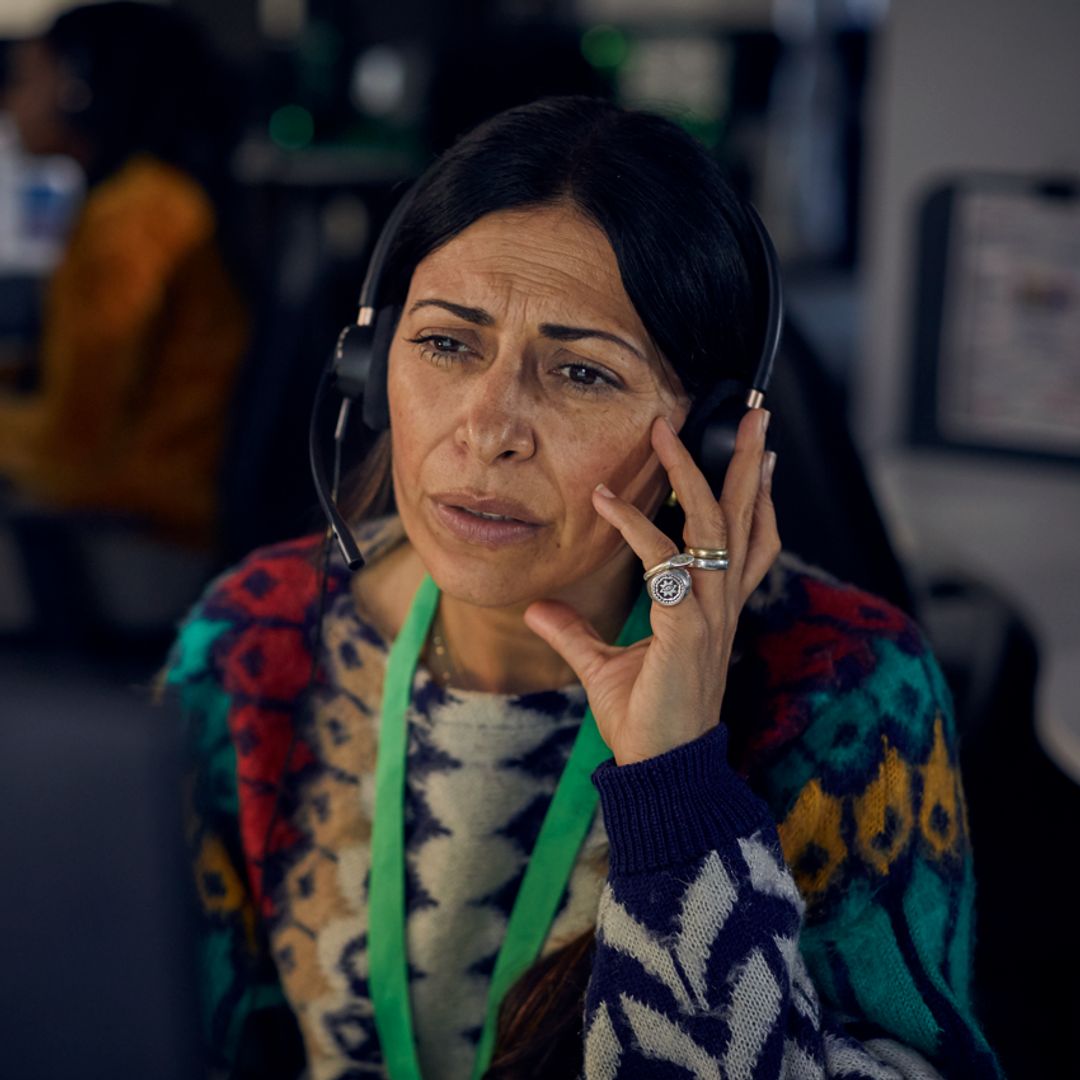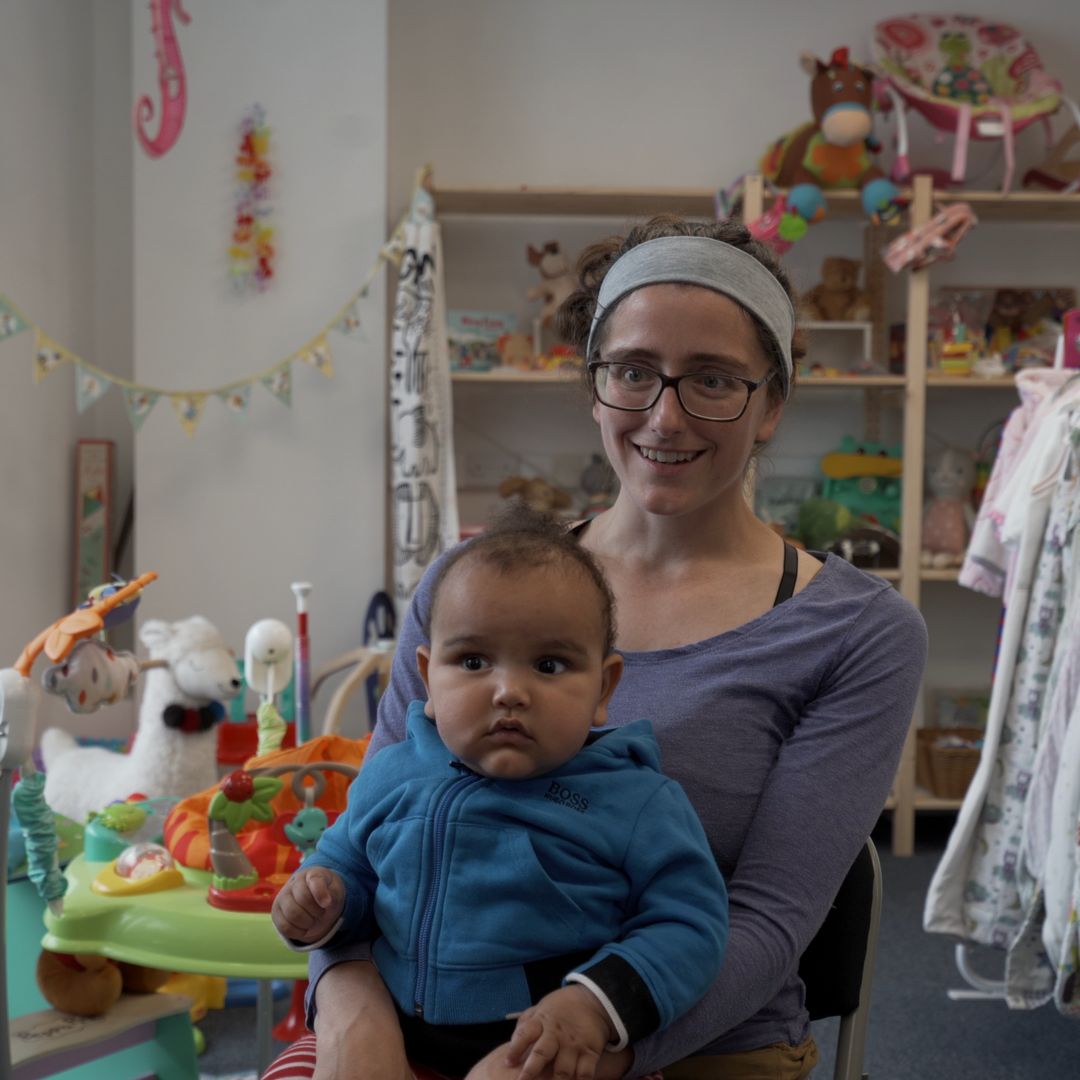Are you worried that your child is being bullied online?
In addition to possible bullying at school, there is now the added concern for parents of cyberbullying when children chat to their peers on social media or while gaming, which can be difficult to monitor and detect.
To help parents navigate online bullying, Envirofone collaborated with Dr Kalanit Ben-Ari, a child development expert and founder of online parenting community, The Village, to share tips on how to spot if your child is being bullied online and how to approach the situation.
Online bullying among children and teens is a concern for parents
How online trolling can affect a child
Short term effects
"Online trolling can harm a child's sense of safety, joy, and trust in others. It can cause them to withdraw from social interactions, anxiety and be closed off in their bedroom, affecting their self-esteem, mental health, and in some cases their body confidence. If the child has a strong connection with their family, they can reach out to an adult for appropriate support and guidance. Sleeplessness is also a common short-term effect of online bullying."
Long term effects
"Unfortunately, the effect can even be more devastating when children don’t have a strong connection with their family, and the child or teenager has no educational or emotional support systems to enable them to cope with the situation. This can worsen the long-term consequences of being bullied. Such as chronic depression, substance abuse, self-half, and suicidal thoughts/attempts."
How to spot the signs your child is being bullied online
Changes in your child's behaviour
"Changes could include, but are not limited to, anxiety, withdrawal from friends and family, closing themselves off in their bedroom, feeling upset and expressing sadness without a clear reason as to why."
They stop taking part in activities
"Many victims of online and offline bullying experience that they no longer participate in activities they used to enjoy. This usually ties in with victims of bullying no longer seeing people that they used to.
"Look out for an obsession with being online, checking messages all the time, feeling stressed and anxious if they are not able to do so constantly."
They are isolating themselves
"Your child may appear to be isolating themselves within the home, expressing anger, or showing an unexpected decline in their schoolwork. The signs can vary in intensity and quantity from one child to the next, but if there is very little joy in their life, or they are trying to avoid school or their usual social life this can be a clear indicator of an issue such as online trolling."
It's important to look at the websites and apps your child visits
How to help if you think your child is a victim of online trolling
Initiate a safe conversation
"Initiate a conversation while you are busy doing another activity, such as walking or driving, so the child or teenager doesn't need to maintain eye contact. Safe conversations mean speaking without any judgment or strong emotions as this can lead them to close up even more.
"The message that you want to portray is that your child will not regret sharing their struggle with you. Parents should avoid blaming or shaming, allowing space for the teen or child to talk about what is going on for them and explore together what can be done to resolve the situation."
Get the school involved
"Reporting bullying incidents to the child’s school is essential for the bullying to be taken seriously. There is also a need, between parents and schools, to educate children about online safety."
Show them privacy settings
"It is important to educate them about privacy settings on social media, and about not engaging with people they do not know directly and in person."
Monitor your children online
"From restricting screen time, blocking apps at certain areas and filtering what content kids can see, security apps permit parents to customize the apps to their family. There are many apps you can choose from, some free and some at a subscription cost."
8 apps to monitor your child's online activity
1. Netnanny: Netnanny is one of the longest-running monitoring providers and is the #1-Rated Internet Filter.
2. KasperSky: Multinational cybersecurity and anti-virus provider.
3. Circle Home Plus: Circle Home Plus can monitor devices at the router level on your home network or via an app on your child's mobile devices.
4. Questodio: Family Parental Control App makes parenting easier with daily screen time monitoring, app monitoring, including Facebook and YouTube, app blocking, family locator, family mode, porn blocker and more.
5. Bark: Bark monitors texts, email, YouTube, and 30+ apps and social media platforms for signs of issues like cyberbullying, sexual content, online predators, depression, suicidal ideation, threats of violence.
6. Boomerang: Boomerang is a parental control app for Android and iOS that helps parents track their children's web, app, and mobile activity. It's mobile-only.
7. Family Time: Lets you manage screen time and block apps on their phones with just a tap. Kids can reach out to you instantly if they ever get into trouble with instant panic alerts.
8. Google Family Link: You can also monitor and limit screen time, including checking out how much time your child spends on their favourite apps, thanks to weekly or monthly activity reports.
Like this story? Sign up to the HELLO! Family Hub newsletter to get other stories like this delivered straight to your inbox.
